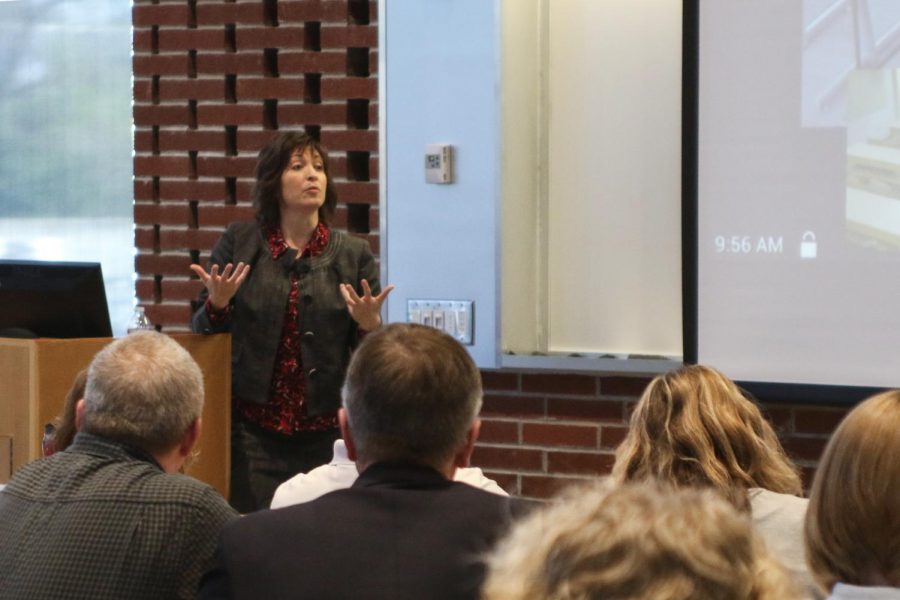Final provost applicant talks promotion of nontraditional students, research
Former dean says she wants to increase WSU enrollment to create more diversity
ABIGAIL LINNENKOHL | THE DAILY EVERGREEN
Mitzi Montoya, finalist for the provost position, answers questions about her perspective on various subjects and the things she values Monday morning at the PACCAR Environmental Technology Building.
April 30, 2019
Faculty and staff heard the final provost candidate discuss ways WSU could create a better system to improve research and education Monday morning.
Mitzi Montoya, dean of Oregon State University’s College of Business, said universities need to respond to the changing student body, more and more of whom are nontraditional students.
When an attendee asked about her thoughts regarding the role of online education, she said online classes are important because of their ability to reach a different population.
Montoya said some students will not come to a residential campus because they might have a family, have a job they cannot leave to reside at a university, or have other reasons online classes suit them better.
She said WSU would have failed in its land-grant mission if it did not offer online classes as an easier way to access education.
The question given to all the provost candidates to respond to was, “What is the role of academic affairs in a multi-campus, multi-unit land-grant university?”
In response to the question, Montoya said, “Academic affairs should advance the educational, research and outreach mission.” To do this, strategic and sustainable systems must be created.
“In many cases, it means we have to undo and unlearn what we have been doing,” she said. “The world around us has changed, and for the most part, many of us have not changed our systems to keep up with that.”
Montoya said to build the systems, universities need to talk about challenges they face. People need to be able to disagree, debate and then make a plan and act upon it. Persistence is required to tackle these barriers.
Universities take action and figure out what does not work to solve problems, she said. In this process to build new institutional systems, there will be conflict, but conflict is productive because criticism makes an idea better.
“I also think it’s absolutely critical that as you work through changes and you evolve an organization that you have to communicate extensively, excessively, incessantly, ad nauseam,” Montoya said.
The public needs to understand why the implementation is occurring, she said.
Lori Carris, associate dean for the WSU graduate school, said she wanted to hear from each of the three candidates because provost is an important position at the university.
Carris wanted to hear from them in-person because it gave her an opportunity to hear their responses to attendees’ questions because going in-person is not the same as reading the candidates’ CVs.
Montoya also mentioned one of the goals of “Drive to 25,” which is to increase enrollment, but she said the question is how.
WSU is enrollment-funded, but more students cannot be enrolled if there is not enough faculty. It is a conundrum, one she has had experience with at OSU, Montoya said.
“I view my responsibility as a leader is to act as a catalyst for the success of others, and by others,” Montoya said. “I mean our faculty, our staff, our students, the communities that we engage in.”




















